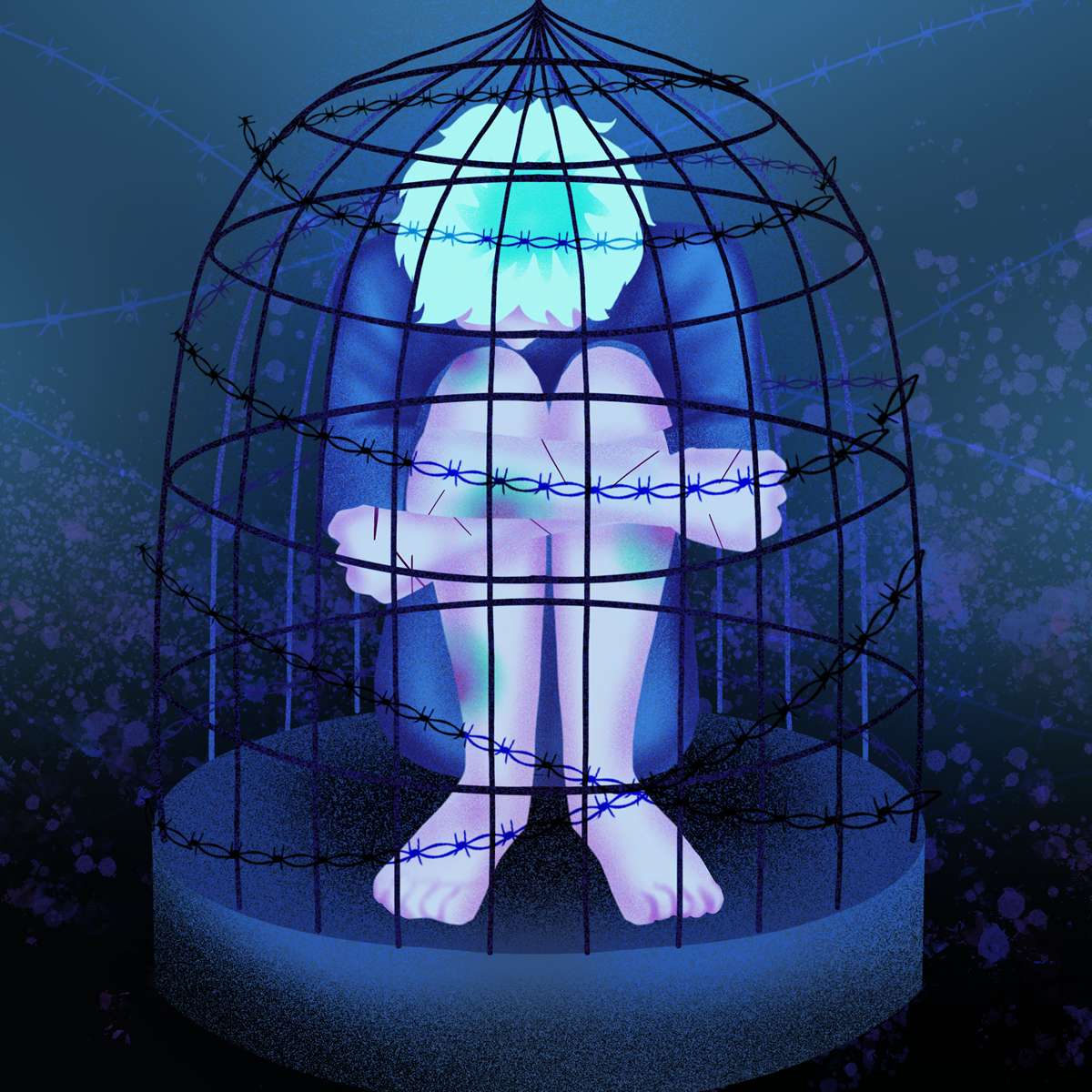Opinions
Taliban persecution against LGBTIQ Afghans heightens
Extremist group regained control of country in 2021

When Pari, a 48-year-old gay man in Afghanistan, was beaten and forced into sex by Taliban officials, his body was so badly bruised that he told his family he had been in a car crash.
Pari had tried to lay low after the Taliban captured control of Afghanistan on Aug. 15, 2021. He is a 48-year-old gay man who worked at a health clinic before the Taliban’s return to power, providing services to men who have sex with men. The clinic shut its doors and laid off its staff as the Taliban retook power, worried that some of its former clients would report their work to the Taliban. They were right to worry. A few weeks into Taliban rule, fighters showed up to the empty building and beat the security guards.
But the immediate months after the Taliban’s return to power was not the worst time for Pari and many other lesbian, gay, bisexual, transgender, intersex and queer (LGBTIQ) Afghans. Nine months later, Pari was identified on the street by a group of Taliban who appeared to know who he was. “You are ‘izak’ and promote gay sex,” they said, using a local homophobic slur. Taliban members beat him and detained him at a checkpoint, demanding the names of his former clients.
Eighteen months after the Taliban takeover, the lives of LGBTIQ Afghans are increasingly in danger. A new Outright report demonstrates the scale and scope of violence against LGBTIQ people, who live in complete insecurity as Taliban persecution becomes increasingly systematic. In the early days after the Taliban takeover, Outright found that most threats and violence came from family members or in chance encounters with Taliban when queer people were spotted based on their appearance or identified when checkpoint guards searched their cell phones. Premeditated targeting was rare.
But Afghanistan’s de facto rulers have stepped up their persecution of LGBTIQ people over the last year. In December, Afghanistan’s Supreme Court announced individuals had been punished for homosexuality in Kabul, and public floggings for homosexuality have also been reported in other parts of the country.
Outright’s documentation suggests that much of the targeting by state agents primarily affects queer men and trans women so far. In one case, a gay activist was found dead outside a police station; a medical examiner found evidence of sexual assault, according to a family member. In another, a trans woman arrived for a dancing gig at a party to discover it was a trap, and she was handed over to Taliban officers.
For queer women and trans men, family members remain a primary source of danger, especially male relatives. One trans man we interviewed was savagely beaten by his uncle who then threatened to hand him over to the Taliban. An intersex woman who’d entered into an arranged marriage reported being beaten by her husband and forced to sleep in a cowshed. He, too, threatened to hand her over to the Taliban.
Violence against LGBTIQ people runs counter to Afghanistan’s obligations under international law and could quite possibly constitute crimes against humanity. The prosecutor of the International Criminal Court (ICC) stated in December that Taliban officials could be prosecuted for “gender persecution” for targeting LGBTIQ people. (Afghanistan is under the ICC’s jurisdiction, having signed onto the treaty authorizing the court in 2003.)
But the international community is doing far too little to protect queer Afghans, or to ensure that their persecutors are brought to justice. It’s almost impossible for queer Afghans to flee to safety. Foreign governments have provided far fewer visas to persecuted Afghans than are needed, and the process of resettlement requires refugees to spend months in Pakistan and other countries where LGBTIQ people are criminalized. Rainbow Railroad, an organization that help LGBTIQ refugees get to safety, has received requests for assistance from nearly 4,000 queer Afghans since August 2021. By the end of 2022, only 247 had managed to reach safe countries.
While many continue to try to leave, most queer Afghans cannot or don’t want to leave Afghanistan. They fall under the protection mandate of the United Nations Assistance Mission in Afghanistan (UNAMA). But UNAMA has not made any public statements regarding LGBTIQ Afghans’ human rights and safety, even omitting reference to such abuses against LGBTIQ people in a human rights report issued in July 2022.
Creating safe space for queer people to connect with UNAMA and other international organizations will require a long process of trust building with the community in a country where being LGBTIQ is so stigmatized. Afghanistan is so dangerous for LGBTIQ people that many fear leaving their homes; the idea of outing themselves to an international agency is terrifying, especially if it requires the involvement of an Afghan interpreter who may share widely held anti-LGBTIQ attitudes.
But the U.N. tasked UNAMA to protect all Afghans when it was created in 2002, and UNAMA must find ways to fulfill that obligation, including by recruiting staff trusted by LGBTIQ people and beginning the crucial work of documenting violence against a deeply marginalized community.
For now, Pari has nowhere to turn for help. He ultimately escaped Taliban detention after agreeing to have sex with a man in exchange for his freedom. He thought about leaving Afghanistan, and secured a passport. But even if he could find a way out, he doesn’t want to abandon his children. To survive, he does everything possible to avoid leaving the house.
Stories like Pari’s are far too common in the Taliban’s Afghanistan. They will only grow more common unless the international community takes action. And with no safe way for most LGBTIQ Afghans to report these abuses, their stories may never be known at all.

J. Lester Feder is Outright’s Senior Fellow for Emergency Research. He researches the situation of LGBTIQ people in significant crises. He is a journalist and photographer who has reported in more than 40 countries, whose work has appeared in outlets including Rolling Stone, the New York Times and Vanity Fair. From 2013-2020, Lester was a senior world correspondent at BuzzFeed News, where he pioneered a first-of-its-kind international LGBTQ rights beat. Lester was named Journalist of the Year in 2015 by NLGJA: The Association of LGBTQ Journalists and received a GLAAD Media Award in 2016.
Lester holds a Ph.D. from the University of California, Los Angeles, and an M.A. from the Columbia Journalism School.
Opinions
Reflecting on six years on the CAMP Rehoboth board
Purpose, people, and the power of community

Some people let life happen; I prefer to plan it—meticulously, intentionally, and yes, sometimes overboard. After losing many loved ones and navigating my own setbacks, I learned not to let life drift by; instead, I live it with intention—curating the people, commitments, and actions that bring joy and meaning, even if others mistake that intentionality for control.
True to form, I close each year with an annual life audit reflecting to see if my personal goals were achieved and, if not, why did I fall short. This habit reflects a simple philosophy: fulfillment doesn’t happen by accident. It comes from daring to imagine the life you want and living deliberately at work, in service to others, and in the everyday moments that make life meaningful.
This year’s assessment is a bit more complicated because on Dec. 31 I will conclude six years on the board of CAMP Rehoboth Community Center — two full three-year terms, including three years as board president. When putting pen to paper, I quickly realized the lessons from the last 12 months were six years in the making.
For those who may not know, CAMP Rehoboth (CAMP is an acronym for Create A More Positive) is widely recognized as the leading provider of life-affirming programs and services in support of LGBTQ people in Rehoboth Beach, Del., and the greater Sussex County area. Since its founding 34 years ago, CAMP’s work has enabled LGBTQ people to thrive. In fact, it is the reason my husband Greg and I (along with thousands of other LGBTQ people) decided to make this part of Delaware our home.
If the past few years have taught me anything, it is that leadership is not a position—it is a practice. It is a daily decision to show up with clarity, steadiness, and a willingness to hold space for others as we navigate change together.
Purpose is the compass. Purpose gives direction when circumstances shift, resources tighten, and competing demands threaten to pull us off course. At CAMP Rehoboth, our purpose has always been to ensure LGBTQ people have access to life-affirming programs, culturally competent services, and a place where they feel seen, valued, and supported. Purpose guided our leadership transition and executive director search, reminding us that the leader our community deserves must bring experience, emotional intelligence, and a deep understanding of what belonging means.
Values are the guardrails. They keep us aligned when opportunities, distractions, or pressures arise. Our values show up in our strategic planning, financial stewardship, and insistence that inclusion is a practice, not a slogan. They ensure that when challenges—political hostility, funding uncertainty, changing community needs—emerge, we respond with integrity instead of reaction.
People are the engine. Organizations don’t create impact — people do. Staff, volunteers, board members, donors, and community members together make the mission real. Investing in their capacity, wellness, and professional development ensures they can do their best work. When we take care of our people, they take care of the community.
I am a gay man who knows how obstacles can feel insurmountable and hope can falter having lived through the AIDS epidemic and fought for civil rights like the legalization of same-sex marriage. In those moments, I chose to focus on what I could control rather than what I could not. Getting involved gave me purpose and proved that fulfillment comes from taking action to make a difference—for yourself and for the broader community.
Gratitude is the culture.
As I close this chapter, what I feel most is gratitude. Gratitude honors those who built the foundation, celebrates those who carry the work forward, and reminds us that progress is a collective effort. Thank you to our staff, especially Executive Director Kim Leisey, who serve with skill and heart; to our volunteers like former board member Chris Beagle and current board president Leslie Ledogar, who give more than anyone will ever know; to our donors, who invest in possibility; and to the community that trusts us to be there in moments of celebration, struggle, and change. Finally, none of this would have been possible without the steadfast love of my husband and the unwavering support of close friends who lifted me in the moments I needed it most.
Reflection, planning, and intentionality do not guarantee perfection — but they make fulfillment possible. Life is too short to leave it to chance. By daring to dream, acting deliberately, and giving generously, we can create lives that are both meaningful and impactful — not just for ourselves, but for the communities we touch.
Wes Combs is an outgoing board member of CAMP Rehoboth.

Trump saw the writing on the wall with regard to releasing the Epstein files. He tried to get ahead of the parade by asking Republicans to vote for release, instead of facing his biggest embarrassment when they were going to anyway. Then there were the major Republican losses in the last election. Now House Armed Services Committee Chair Mike Rogers (R-Ala.), and Senate Armed Services Committee Chair Roger Wicker (R-Miss.), and their Democratic ranking members, are investigating the Pentagon after it was reported Secretary of Defense Pete Hegseth potentially committed a war crime with regard to the bombing of boats suspected of running drugs. It really seems we are seeing the beginning of the fall of Trump.
That’s not to say the felon doesn’t continue to have the power to screw the country, and the world. He does. Those around him like Vought at OMB, and his personal Goebbels, Stephen Miller, will push him harder to advance Project 2025 before the mid-term elections. There are so many things in that 900-page document that have yet to be perpetrated on the American people. I am sure the felon doesn’t know half of them, as one can be quite confident, he never read it. Each day we wake to some new outrage by the grifter in the White House. His family cutting deals with the Saudis, upping and lowering tariffs as the mood strikes. Not in a rational way because they have already proven to be a disaster for the American people. Then the continuing destruction of our healthcare system by RFK Jr.
Then the felon threatens Venezuela, and illegally declares the airspace around it closed. The felon threatens Indiana Republican legislators who don’t go along with his request for redistricting, with primaries. A judge in Texas rules their redistricting is illegal, though the Trump Supreme Court did overrule that. He calls Marjorie Taylor Green a traitor, then his MAGA cult threatens her life. She resigns. He does the same to Democratic legislators who made a video telling the military they do not have to obey unconstitutional orders. The felon called that “SEDITIOUS BEHAVIOR, punishable by DEATH!” He went further and reposted a Truth Social post that read “HANG THEM GEORGE WASHINGTON WOULD !!” This now has his MAGA base threatening their lives. They are not resigning. All of this adding to the feeling his acts, and statements, clearly reek of desperation.
He continues to blame Biden, nearly a year after taking office, for his own failures. He blames Biden for not vetting the Afghani immigrant who shot the two National Guard members from West Virginia patrolling D.C. This, while it was his administration, that granted him asylum without any vetting, in April.
I find it incomprehensible there are still some people, who can’t, or don’t, want to understand attacking Democrats for what is going on today, makes no sense, when the felon controls the White House, Congress, and the Supreme Court. Staying home, or voting for third party candidates, with no chance of winning, is like voting for the Republican. In the recent elections we began to see those who don’t like what is happening, wake up. They realize only a vote for a Democrat will make a difference. We saw that across New York, New Jersey, Pennsylvania, Virginia, and Georgia.
As we approach the midterm elections, I plead with those who are not there yet, look at history, count how many independents were ever elected to Congress. In our system that rarely happens. Wishful thinking doesn’t win elections. Yes, I want Congress to look younger. I am happy Nancy Pelosi (D-Calif.), and Jerald Nadler (D-N.Y.), among others, have retired, allowing for primaries in their districts. I could name a few more in safe Democratic seats who I hope do the same. While not in office, young people should appreciate those who retire, might still have some wisdom from their years of service to share.
The young aren’t compelled to listen, yet someone like Pelosi, with her vast experience, could help a new person as they run to win, and then navigate the halls of Congress. If you look at all the demonstrations against the felon, and his administration, the age of the people demonstrating often skews older. Those like me have the time to demonstrate, and we do. We want to see the felon fall, and will work hard to make it happen. While too old to run for office, I will continue to voice my opinions. I will even endorse candidates I like. I suggest to all candidates it is important to do more than talk in generalities. You need an issues section on your website. Tell voters what you will do when elected. What bills will you introduce, which ones will you support. That may be old-fashioned, but it’s still important. And definitely be clear which party you will support if elected. I know, another old-fashioned idea.
As the felon continues to lose the support of the American people, I see young people begin to move to the Democratic Party, realizing if they step up to be counted, it will make a difference for their future. If this trend continues, I believe we are headed toward a better time in America.
Peter Rosenstein is a longtime LGBTQ rights and Democratic Party activist.
Opinions
Tammy Bruce, Trump’s lesbian nominee for deputy UN ambassador. Just say no!
Senate Foreign Affairs Committee advanced former State Department spokesperson’s nomination this week

One evening In the late 1990’s, I drove over to the home of my late friend, Jim Hormel, to review a number of countries to which he was being considered by the Clinton administration to serve as our country’s first openly gay ambassador. It was a very big deal. Secretary Madeleine Albright would eventually swear him in during a teary-eyed ceremony, but only after a recess appointment in order to avoid an ugly, partisan fight in the Senate over Jim’s sexuality.
Fast-forward to today, and our country has had over 30 openly gay male ambassadors — both career diplomats and political appointees — and one, single lesbian at an ambassador-ranked position at the Asian Development Bank, Chantale Wong. (Ambassador Wong is also one of only two people of color among the openly gay or lesbian ambassadors.) I am very proud to have helped convince Amb. Wong to come out of retirement to take on that important role, because the time was right for someone with her passion, experience, and commitment to push for inclusive development policies at a major international financial institution. In fact, she had occupied the position once before as acting executive director of the ADB under the George W. Bush administration, and used that expertise to successfully champion an inclusive development policy that explicitly names sexual orientation and gender identity as a non-discrimination category, as well as other programs that benefit community members. But getting through the Senate confirmation process was not an easy task before this second Trump administration, especially for those without the resources or connections to deploy their own personal lobbyists, even when the candidate was superbly qualified.
So, a few months ago, when I read that Tammy Bruce was nominated by President Trump to be one of our ambassadors to the United Nations, I choked on my coffee. I couldn’t believe that our second ever openly lesbian ambassador would be a far-right, anti-trans, anti-Muslim, Trump loyalist. But, maybe the choice was not so surprising after all, which then says a lot about the Biden administration’s priorities. Trump was also the president who made good on the Human Rights Campaign’s longtime push for an openly gay G7 ambassador, with the appointment of another far right, anti-Muslim, gay ambassador, Richard Grenell to Germany. These two people alone should convince any sane human why identity-politics alone has severe limits.
After 16 years of submitting short lists of qualified lesbian-identified and trans-identified candidates to the White House Office of Personnel Management to be considered for appointed ambassador positions, and also simultaneously trying to support senior, career diplomats who are lesbian or trans to advance in their careers, I was particularly frustrated and enraged. While I believe it’s time to move beyond identity politics, I also deeply believe that diverse representation matters. Not tokenization (and not donor-purchased ambassadorships) but exceptionally well-qualified, diverse American people, who represent the actual plurality of our nation, which makes us stronger. The foreign affairs arena, in particular, is overly white and male dominated. Think what you may about “DEI,” but a diplomatic corps that doesn’t reflect the diversity of our nation doesn’t make our country stronger — it actually makes us less globally relevant and decreases our understanding of this rapidly changing, multi-polar world.
The 34:1 ratio of gay men to lesbians among our nation’s openly queer ambassadors that exists today is infuriating to me as a woman, a feminist, a lesbian, and as a human rights leader. And yet, the nomination of Tammy Bruce, infuriates me even more. She is an extremist ideologue who uses her platform for hate.
Bruce’s hate centers on her anti-Muslim extremism. According to CNN’s Andrew Kaczynski and Em Steck, “Trump’s pick for deputy UN job questioned [the] loyalty of American Muslims … (Bruce) for years promoted inflammatory, anti-Muslim and conspiratorial claims, including suggesting that former President Barack Obama was a secret Muslim bent on harming America. A CNN KFile review of Bruce’s blog posts, social media posts, columns and radio commentaries starting in the early 2000s shows a pattern of demeaning language about Muslims, including suggesting that American Muslims needed to prove their loyalty after the Sept. 11, 2001, terrorist attacks … Bruce didn’t respond for comment.”
When nominating Bruce, Trump said, “after being a liberal activist in the 1990s, (Bruce) saw the lies and fraud of the Radical Left, and quickly became one of the strongest Conservative voices on Radio and Television.” Bruce wrote the book “The New Thought Police,” aiming to “expose the dangerous rise of left-wing McCarthyism.” In addition to poking fun at feminists, anti-racists, and progressives, she has particularly promoted misguided anti-trans ideology, such as championing the cause of Chloe Cole, a “detransitioner” who had top surgery at age 17. Bruce uses this outlier case to justify legislation to ban trans health care in the United States.
The extremist right loves to scapegoat trans people and their right to appropriate, life-saving health care. Confirming Ms. Bruce for this role as a U.S. representative at the United Nations, with all of her whacky and fringe ideology, is incredibly dangerous for U.S. citizens and for others throughout the world. The person who represents the United States at the United Nations must be able to talk to every other country representative, in order to be effective. Ms. Bruce will be viewed with suspicion and avoided because of her past statements and views. Again, such extremism has no place in our government or representing our country. In her confirmation hearing, Ms. Bruce called President Trump’s leadership at the United Nations “inspirational.” She refused to call the massacre in Sudan a genocide. She didn’t seem to understand what leverage the U.S. might have with the UAE to stop arming this genocide. She deferred multiple times to serving this President in whatever foreign policy aims he has. In this era of increasing authoritarianism, we do not need more obsequious servants to King Trump. Now that Ms. Bruce has been voted out of committee, this proud lesbian, respectfully requests all U.S. Senators to not confirm Ms. Bruce for U.S. Deputy Ambassador to the United Nations.
Julie Dorf is co-chair of the Council for Global Equality.
-

 Congress3 days ago
Congress3 days agoEXCLUSIVE: George Santos speaks out on prison, Trump pardon, and more
-

 Opinions4 days ago
Opinions4 days agoThe beginning of the fall of Trump
-

 Congress5 days ago
Congress5 days agoMarkey reintroduces International Human Rights Act in Senate
-

 Egypt4 days ago
Egypt4 days agoIran, Egypt object to playing in Seattle World Cup ‘Pride Match’




















